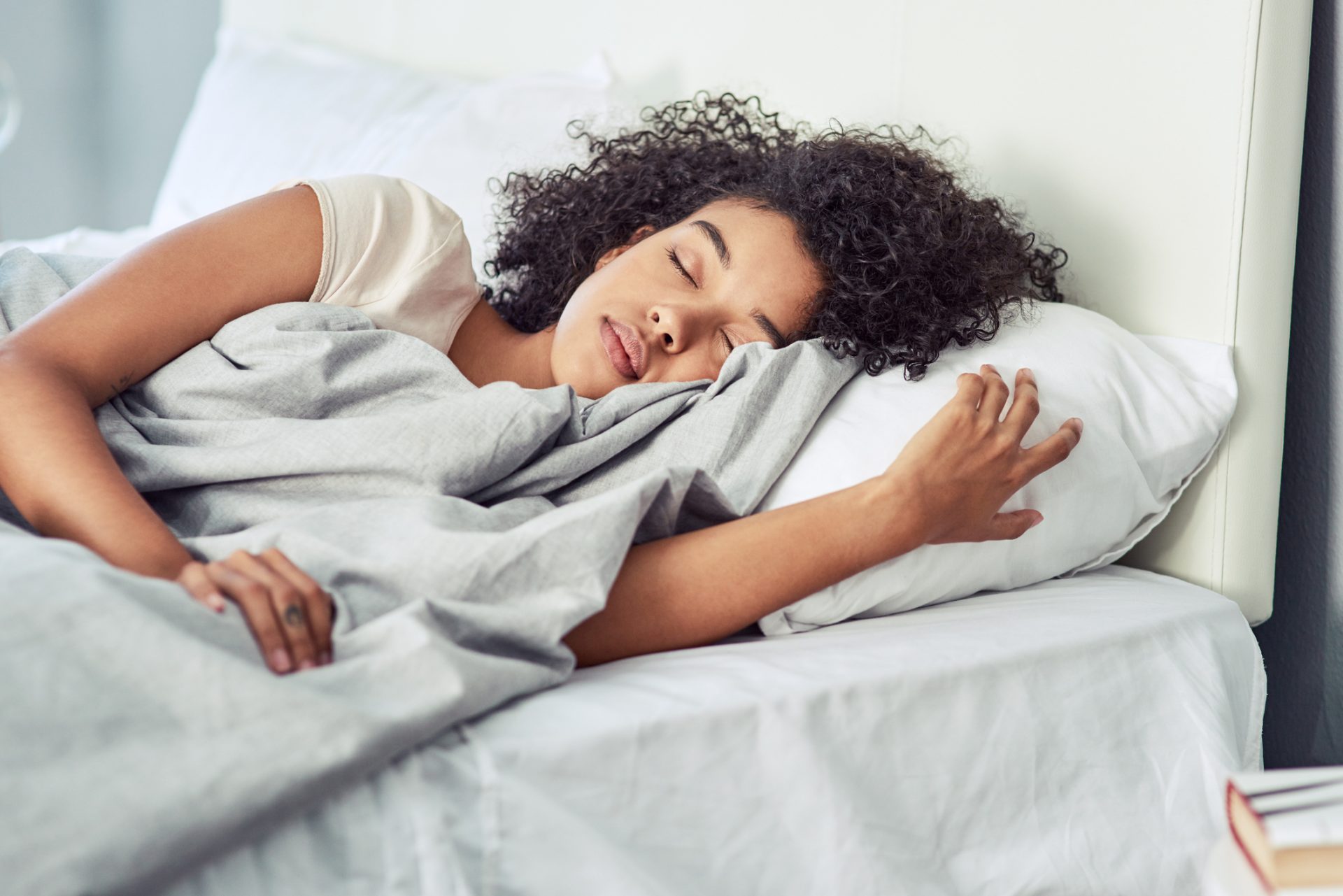“Can I really ‘bank’ sleep to get me through stressful times?”
Can you catch up on sleep before life gets busy? A sleep expert explains the concept of sleep banking.
Pre-pandemic, I believed in ‘doing it all’. I’d wake up at 6am to workout, do an entire days work before heading out to for dinner with friends then collapsing into bed at 11 o’clock. I was averaging six or so hours of sleep a night. It was fine, I told myself, because I sleep loads on the weekend.
Now, even in the pandemic, I’m finding myself in a similar sleep cycle. Only this time, it’s my weekdays that are more relaxing. I have no shame in slinking off to bed at 9:45pm from Monday to Thursday and getting up at 7:00am to smash out a workout, but come Friday or Saturday nights I’m forgoing sleep in order to spend time staying up late with my housemates, celebrating absolutely nothing.
But I also like to get up early to train on the weekends, as I can take my time without having to rush off to work (read: my kitchen desk). Weekends are also prime time for walks with friends, so I squeeze those in where I can. Oh, and I’m training to be a personal trainer, so that takes up a large chunk of my Sundays. It’s fine, I tell myself, because I sleep loads during the week.
Is this really true? Can I actually ebb and flow between nine and five hours of sleep? Well it turns out that there’s a whole field of research asking that same question.
You may also like
Can you exercise with a friend during the coronavirus lockdown? Your questions, answered
What is sleep banking?
‘Sleep banking’ or ‘sleep extension’ was first coined in 2009 by researchers who wanted to see if they could ‘prep’ people for sleepness nights. The theory is simple: you get extra sleep before a busy period starts so that you can rely on some of the sleep you have ‘banked’.
“The idea seems to have come out of the military and elite sporting world, where it’s almost inevitable that there will be certain times when they’d be unable to get the recommended seven to nine hours and it would be good to prepare for that sleep assault,” explains sleep expert Dr Sophie Bostock.
In a French study in 2015, researchers made participants sleep for either seven or nine hours a night in the week before depriving their sleep to just three hours. What they found was that those people in the nine-hour group, who ‘banked’ an extra couple of hours a night, were more “resilient” during the sleep deprivation week – less likely to make significant errors on a reaction time test and they recovered more quickly.
You may also like
“This is how sleep deprivation helped my anxiety”
“There definitely is some evidence that, at least occasionally, it’s possible to prepare for sleep deprivation,” explains Dr Bostock. But before planning the rest of your week’s banking and foregoing sleep, may Dr Bostock emphasise the word ‘occasionally’.
“The problem with doing this constantly is that you end up putting a lot of pressure on your body clock to shift forwards and backwards, and this puts you at an increased risk of disease. Any voluntary assaults on your body is probably a bad idea. Having said that, if you’re in a situation where you can’t get enough sleep during the week, it probably is better to try and rest up beforehand,” she says.
So no, relying on my lazy weekday evenings to get me through intense weekends is not particularly good for me. However, it might be excusable to let myself rest ahead of the odd weekend when I logistically couldn’t prioritise sleep because, for example, I have a big deadline, a friends birthday Zoom, an extra-curricular project and I want to keep up my exercise routine in order to support my mental health.

Is sleep banking a good idea?
But I know what I’m like. I can’t just allow myself an extra two hours sleep to look after future me, if the me at the time isn’t tired. In fact, it’s wise to not attempt to bank too much sleep, says Dr Bostock. “We shouldn’t be forcing ourselves to sleep, so if you’re already well-rested then staying in bed for a couple of extra hours just to prepare is probably not going to do you any favours at all,” says Dr Bostock.
That brings me to the question: is it better to bank sleep in an attempt to avoid burnout, or get on with it and simply catch up when the damage has been done? The answer isn’t simple, says Dr Bostock: “Given that you’re more likely to recover faster from the deprivation if you bank some sleep in advance, you’re probably better off doing that. But often, we don’t know when we will experience a period of disrupted sleep, so it’s better to catch up than just run on a deficit.
While all of this biohacking might sound like a great idea, “the best sleep is natural sleep,” says Dr Bostock. “It’s going to bed when you feel sleepy, and it’s waking up without an alarm clock. And after a while, you kind of get into the rhythm of working out what your body needs.” Really, the best thing you can do for your brain is to not let yourself get so overwhelmed that you end up foregoing sleep. But it’s great to know that our bank can be there for emergencies.
Follow @StrongWomenUK on Instagram for the latest workouts, delicious recipes and motivation from your favourite fitness experts.
Images: Getty
Source: Read Full Article
